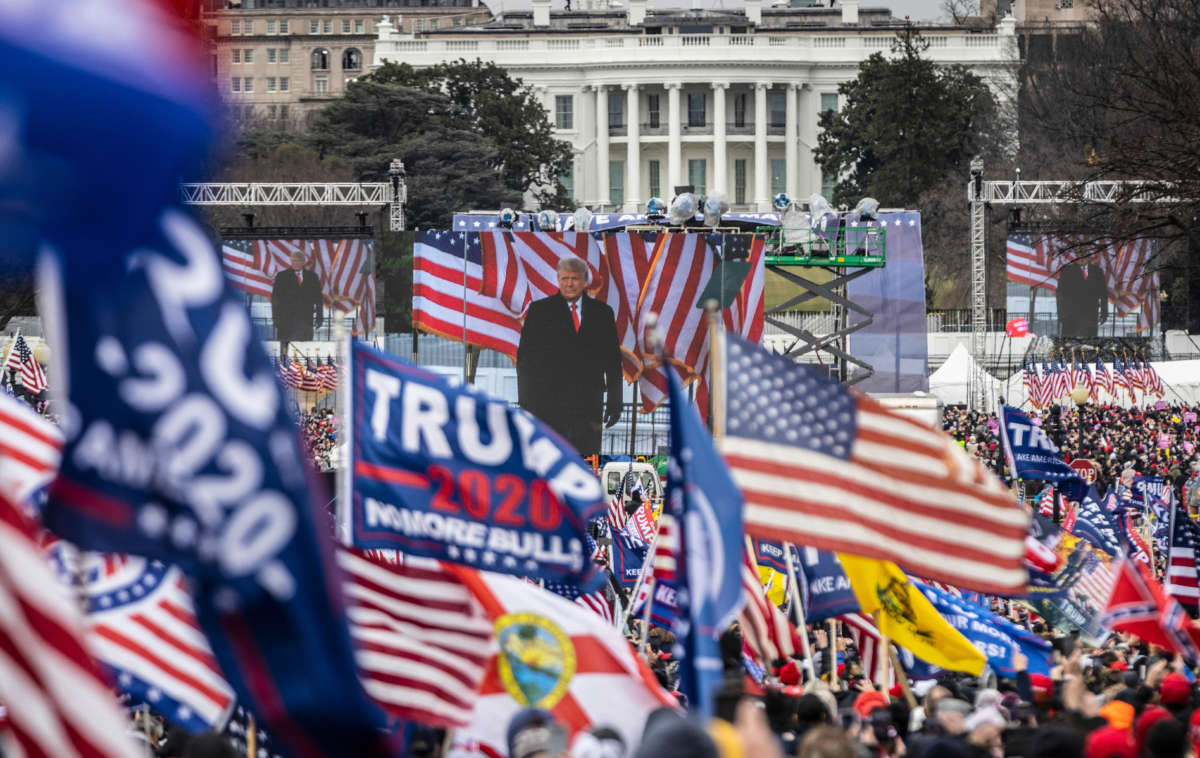The House select committee investigating the January 6, 2021, attack on the U.S. Capitol building is planning to hold public hearings — which will likely be televised — on its main findings in April, presenting the case that former President Donald Trump engaged in criminal behavior.
Court filings from the committee on Wednesday demonstrate that it believes Trump and his associates engaged in a “criminal conspiracy” to overturn the 2020 presidential election; this conspiracy includes attempts to use fake electors in the Electoral College to ensure that he would remain in office, despite actually losing to President Joe Biden.
“Evidence and information available to the Committee establishes a good-faith belief that Mr. Trump and others may have engaged in criminal and/or fraudulent acts,” the committee’s legal filing said.
On Friday, the publication The Guardian, citing conversations it had with committee chair Rep. Bennie Thompson (D-Mississippi), said that the committee would likely begin public hearings next month. These hearings will showcase how Trump interfered with official congressional business through his false rhetoric and unlawful actions, and will likely be televised, previous comments from committee members have suggested.
Trump’s words were indeed incendiary. On the morning of January 6, 2021, he gave a speech to his loyalists in front of the White House, telling them that their country was being “stolen,” and that they couldn’t take it back “with weakness.” He then encouraged the mob to go to the Capitol while Congress was in session, certifying the Electoral College win for Biden.
“The president’s rhetoric persuaded thousands of Americans to travel to Washington for January 6, some of whom marched on the Capitol, breached security, and took other illegal actions,” Thompson told The Guardian. “The select committee’s hearings will address those issues in detail.”
Thompson added that the hearings in April will feature witnesses who have agreed to speak freely — without being subpoenaed — to discuss what they know regarding Trump’s and his allies’ actions.
One of the main concerns about televised hearings for the January 6 investigation is whether they will be effective in making the case to the American people that charges relating to the attack should eventually be recommended. It’s possible that the hearings could be a flop, some have warned, in terms of garnering attention or persuading people that the investigation is still needed.
Yet polling suggests that most Americans would be interested in hearing what the committee has to say, and that they would likely be receptive to its findings. An Economist/YouGov poll from last month, for example, shows that 49 percent of Americans approve of the January 6 commission’s work, while just 33 percent disapprove. Another 18 percent are unsure.
We’re not backing down in the face of Trump’s threats.
As Donald Trump is inaugurated a second time, independent media organizations are faced with urgent mandates: Tell the truth more loudly than ever before. Do that work even as our standard modes of distribution (such as social media platforms) are being manipulated and curtailed by forces of fascist repression and ruthless capitalism. Do that work even as journalism and journalists face targeted attacks, including from the government itself. And do that work in community, never forgetting that we’re not shouting into a faceless void – we’re reaching out to real people amid a life-threatening political climate.
Our task is formidable, and it requires us to ground ourselves in our principles, remind ourselves of our utility, dig in and commit.
As a dizzying number of corporate news organizations – either through need or greed – rush to implement new ways to further monetize their content, and others acquiesce to Trump’s wishes, now is a time for movement media-makers to double down on community-first models.
At Truthout, we are reaffirming our commitments on this front: We won’t run ads or have a paywall because we believe that everyone should have access to information, and that access should exist without barriers and free of distractions from craven corporate interests. We recognize the implications for democracy when information-seekers click a link only to find the article trapped behind a paywall or buried on a page with dozens of invasive ads. The laws of capitalism dictate an unending increase in monetization, and much of the media simply follows those laws. Truthout and many of our peers are dedicating ourselves to following other paths – a commitment which feels vital in a moment when corporations are evermore overtly embedded in government.
Over 80 percent of Truthout‘s funding comes from small individual donations from our community of readers, and the remaining 20 percent comes from a handful of social justice-oriented foundations. Over a third of our total budget is supported by recurring monthly donors, many of whom give because they want to help us keep Truthout barrier-free for everyone.
You can help by giving today. Whether you can make a small monthly donation or a larger gift, Truthout only works with your support.
